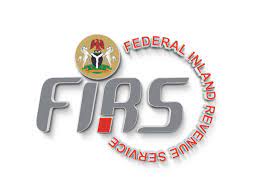COVER
Our Policies Hurting Nigerians, Shettima Admits

By Tony Obiechina, Abuja
Vice President Kashim Shettima has admitted that some of the economic reforms of the present administration have been painful.
The Vice President who acknowledged this in his address at the opening of the Nigerian Economic Summit (NES#30) in Abuja yesterday also added that the reforms are inevitable.
The Vice President who represented President Bola Tinubu at the event said like many other nations, Nigeria has experienced significant economic problems over the past few years.
According to him, “Nigeria’s growth trajectory has been volatile, heavily dependent on oil revenue and unable to create enough jobs to keep pace with our rapidly growing population.
”He said, “As a nation, we must prioritize economic diversification. Considering this, the present administration, through the Renewal Hope Agenda has embarked on bold and courageous reforms designed to create an environment that fosters sustainable economic growth and shared prosperity, though painful at the moment.
“Our focus is on sectors that can offer inclusive and sustainable growth such as agriculture, manufacturing and the digital economy.”
He commended the Nigerian Economic Summit Group (NESG) for being in the forefront of helping the government by creating a platform for meaningful conversation on the economy.
Also speaking, the Minister of Budget and Economic Planning, Senator Abubakar Atiku Bagudu said that government in its determination to change the trajectory of economic growth and development is focusing on strategic sectors that will spur growth in the short to medium term, addressing the current macroeconomic instability, particularly the exchange rate, inflation, and unemployment, to achieve sustainable economic growth and development.
The minister said the sub-themes of the summit: Fostering Inclusive Development, Unleashing Business Dynamic, Igniting Innovation and Digital Evaluation, and Promoting Stakeholder Collaboration, align with the eight priority areas of the current administration.
Bagudu said the Nigerian Economic Summit has over the years played a pivotal role in the sustenance of national dialogue on the economy and framed deliberations within the context of the aspirations for a better quality of life for the people.
He submitted that the summit’s recommendations continue to inspire the government to reform critical sectors of the economy.
The minister noted, “For instance, the 29th Summit emphasised the urgent need to tighten foreign exchange rules, broaden the official market, and harmonise fiscal and monetary policies for a balanced approach to economic stability.
“Under the Renewed Hope strategy, and in line with these recommendations, President Bola Ahmed Tinubu’s administration has sustained its foreign exchange reforms, eliminating the hitherto multiple rates even as the Central Bank of Nigeria regularly fine tunes its guidelines to enhance monetary policy stability.”
The theme of this year’s summit, “Collaborative Action for Growth, Competitiveness and Stability” reflects the critical imperatives required to sustain our economic growth and development and improve the lives of all.
“This is consistent with the government’s commitment to the Renewed Hope Agenda and the Revised National Development Plan 2021-2025.
Earlier in his welcome remark, the chairman of NESG, Olaniyi Yusuf said the twin problems of income inequality and multidimensional poverty continue to cast a long shadow over the country’s progress.
According to him, “Nigeria’s struggle with an uneven distribution of resources, macroeconomic instability, and institutional fragility prevents it from reaching its full potential.
“The task before us is to forge decisive reforms that can break these cycles of stagnation and pave the way for equitable growth.”
He said Nigeria must seize the opportunities before it to rebuild the foundations of inclusive growth.
“The fiscal space created by the reforms of 2023 offers a unique chance to invest in our natural (minerals), built (Infrastructure), human, and social capital,” he said, adding, “We must harness our resources—energy, agriculture, or minerals—and build infrastructure enabling productivity.
“Above all, we must invest in our people, ensuring every Nigerian has access to education, healthcare, nutrition and economic opportunities.
“Now is the time for strategic legislative and regulatory reforms to secure a prosperous future. We must create frameworks that enhance productivity, unlock key sectors, optimise underperforming assets and strengthen our markets to foster trade and investment.”
In his goodwill message, Senior Vice President, World Bank Group, Indermit Gill said Nigerians are really suffering insisting that oil wealth should be used for the good of the people.
He noted that Nigeria is suffering from 40 years of economic mismanagement as the country allowed oil to dominate its economy.
While commending the economic reforms of Tinubu, he said that the best economic reform Nigeria ever undertook was the reform of 2003 to 2007.
COVER
Nigeria Inflation Rises to 32.70 Percent in Sept – NBS
By Tony Obiechina, Abuja
National Bureau of Statistics (NBS) yesterday disclosed that Nigeria’s inflation rate rose to 32.70% in last month.The Statistician General and Chief Executive Officer of NBS, Adeyemi Adeniran in a statement said the headline inflation rate increased to 32.
70% relative to the Aug. headline inflation rate which stood at 32. 15%.According to him, the Sept. Headline inflation rate rose by 0. 55% compared to the Aug. Headline inflation rate.Similarly, on a year-on-year basis, the Headline inflation rate was 5.98% points higher than the rate recorded in Sept. 2023, which was 26.72%. This shows that the Headline inflation rate (year-on-year basis) increased in September 2024 compared to the same month in the preceding year (i.e., Sept. 2023).The latest report said the increase recorded in the Headline Index for Sept. was attributed to the rise in the average price of some items in the basket of goods and services at the divisional level compared to what these items recorded in Aug.According to the report, these increases affected Food & Non-Alcoholic Beverages (16.94%), Housing, Water, Electricity, Gas & Other Fuel (5.47%), Clothing & Footwear (2.50%), Transport (2.13%), Furnishings & Household Equipment & Maintenance (1.64%), Education (1.29%) and Health (0.98%). Others are Miscellaneous Goods & Services (0.54%), Restaurants & Hotels (0.40%), Alcoholic Beverages, Tobacco & Kola (0.36%) as well as Recreation & Culture and Communication which stood at 0.22%, respectively.The month-on-month Headline inflation rate in Sept. stood at 2.52%, this shows an average increase of 0.30% on the general price level relative to Aug. (2.22%).The percentage change in the average CPI for the 12 months ending Sept. over the average CPI for the previous twelve months was 31.73%, showing an 8.83% increase compared to 22.90% recorded in Sept. 2023.The Food Sub-index inflation rate in Sept. was 37.77% on a year-on-year basis, 7.13% points higher than the rate recorded in Sept. 2023 (30.64%). The rise in Food inflation on a year-on-year basis was caused by increases in prices of the following items Guinea Corn, Rice, Maize Grains, Beans, etc (Bread and Cereals Class), Yam, Water Yam, Cassava Tuber, etc (Potatoes, Yam & Other Tubers Class), Beer (Local and Foreign) (Tobacco Class), Lipton, Milo, Bournvita, etc (Coffee, Tea & Cocoa Class) and Vegetable Oil, Palm Oil etc (Oil & Fats Class).Similarly, the Food inflation rate on a month-on-month basis, in Sept. was 2.64% which shows a 0.27% increase compared to the rate recorded in Aug. (2.37%).The rise can be attributed to the rate of increase in the average prices of Beer (Local and Foreign) (Tobacco Class), Vegetable Oil, Groundnut Oil, Palm Oil etc. (Oil & Fats Class), Beef, Gizzard, Dried Beef etc. (Meat Class), Lipton, Milo, Bournvita, etc (Coffee, Tea & Cocoa Class) and Milk, Egg etc. (Milk, cheese and Eggs Class).The average annual rate of Food inflation for the 12 months ending Sept. over the previous twelve-month average was 37.53%, higher by 11.88% points from the average annual rate of change recorded in Sept. 2023 (25.65%).“All items less farm produces and energy” or Core inflation, which excludes the prices of volatile agricultural produces and energy stood at 27.43% in Sept. on a year-on-year basis; up by 5.59% when compared to the 21.84% recorded in Sept. 2023.”The highest increases were recorded in prices of the following items, Rents (Actual and Imputed Rentals for Housing Class), Bus Journey intercity, Journey by motorcycle, etc. (under Passenger Transport by Road Class), and Accommodation Service, Laboratory service, X-ray photography, Consultation Fee of a medical doctor, etc. (under Medical Services Class)”, statement added..On a month-on-month basis, the Core Inflation rate stood at 2.10% in Sept. This shows a decrease of 0.17% compared to 2.27% recorded in Aug.The average 12-month annual inflation rate was 25.64% for the twelve months ending Sept.; this was 6.09% points higher than the 19.55% recorded in Sept. 2023.The Urban consumers’ annual inflation rate in Sept. on a year-on-year basis was 35.13%. This indicated an increase of 6.46% points higher compared to the 28.68% recorded in Sept. 2023.Similarly, the Urban month-on-month inflation rate increased to 2.67% in Sept., showing a rise of 0.28% compared to Aug. (2.39%).The corresponding twelve-month average for the Urban inflation rate was 33.95% in Sept. This was 9.84% points higher compared to the 24.10% reported in Sept. 2023.Also, the rural areas’ Headline Inflation rate in Sept. was 30.49% on a year-on-year basis; this was 5.55% higher compared to the 24.94% recorded in Sept. 2023.On a month-on-month basis, the Rural inflation rate in Sept. was 2.39%, up by 0.33% points compared to Aug. (2.06%).The corresponding 12-month average for the Rural inflation rate in Sept. was 29.76%. This was 7.97% higher compared to the 21.79% recorded in Sept. 2023.The analyses of the states’ profiles shows that the all-item index for Sept., on a year-on-year basis was highest in Bauchi (44.83%), Sokoto (38.74%) and Jigawa (38.39%), while Delta (26.35%), Benue (26.90%) and Katsina (27.71%) recorded the slowest rise in headline inflation on a year-on-year basis.On the other hand, on a month-on-month basis, Sept. recorded the highest increases in Sokoto (4.63%), Taraba (4.07%), Anambra (3.74%), while Kwara (1.14%), Cross River (1.78%) and Lagos (1.82%) recorded the slowest rise on Month-on-Month inflation.The analysis of the food index at state levels in Sept., on a year-on-year basis, recorded highest in Sokoto (50.47%), Gombe (44.09%), and Yobe (43.51%) while Kwara (32.45%), Rivers (32.80%) and Kogi (32.83%) recorded the slowest rise in Food inflation on a year-on-year basis.On the other hand, on a month-on-month basis, Sept. Food inflation was highest in Sokoto (5.94%), Taraba (5.76%), and Bayelsa (4.44%), while Kwara (0.88%), Cross River (1.29%) and Kogi (1.45%) recorded the slowest rise in Food inflation.COVER
NSA, States Join Forces on Security Networking

By David Torough, Abuja
Office of the National Security Adviser (ONSA) has initiated moves to expand and strengthen national security network nationwide.A statement by ONSA yesterday in Abuja said the new security arrangement will be coordinated by a newly established Directorate of State Liaison (DSL).
It added that President Bola Tinubu approved the establishment of the DSL and the appointment of Ms Lami Chinade as its pioneer Director. The Director will be reporting to the National Security Adviser, Mallam Nuhu Ribadu.The Director, DSL, Chinade is saddled with the responsibility of providing strategic leadership and oversight for the directorate, working closely with key stakeholders at the state and local levels, including civil society organisations.The scope of the states-federal government joint operation will involve intelligence gathering and sharing between the states and the centre.According to ONSA, the newly created directorate is part of President Tinubu’s efforts to enhance proactive coordination on national security matters with states and local government areas (LGAs).It added that the directorate would be responsible for overseeing the implementation and follow-up of joint decisions between state governors and the ONSA.“Key functions will include maintaining a comprehensive database of contact persons at the state and local levels and developing community engagement programs in collaboration with Federal Ministries, Departments, and Agencies (MDAs).“The directorate will play a critical role in ensuring smooth coordination of national security policies at the state and local levels.“It will also focus on conflict resolution, identifying areas for improvement, and fostering cooperation to enhance national security service delivery across all states.“Additionally, the DSL will act as a liaison between state authorities and the federal government to ensure clear communication, effective collaboration, and alignment of security priorities,” the ONSA said.ONSA further emphasised that the creation of the DSL was driven by the need to monitor and assess the impact of national security policies on state governance and local development.It added that the directorate was also designed to facilitate dialogue and negotiations to address potential conflicts between states and national security entities.The creation of the new Directorate is said to be a strategic step toward enhancing national security amidst rising terrorism and banditry across the nation.The DSL will also ensure that security policies are aligned with the specific needs and realities of each state. This will help address the fragmentation in security efforts and foster a more united and consistent approach to tackling insecurity.Also, the DSL is expected to develop community engagement programmes, which are crucial to gathering local intelligence on a wide range of security challenges peculiar to each state and local government.Additionally, it is expected to facilitate a better understanding of local dynamics and closer interaction with communities.This will enable the authorities to preempt security threats and work with local leaders to manage conflicts before they escalate.Similarly, a comprehensive database of contact persons at the state and local levels will ensure timely response during security emergencies.It will also streamline communication and facilitate rapid mobilisation of resources to areas where they are needed most.Until her appointment, the pioneer DSL Director, Chinade had previously served as Head of the Monitoring Unit and Senior Legal Officer at the National Human Rights Commission.She had also held the position of Chief Operating Officer in the downstream operations of a leading petroleum resources company, the ONSA said.COVER
NDDC Urges Contractors to Register with Chamber of Commerce

All contractors doing business with the Niger Delta Development Commission (NDDC) have been urged to register with the Niger Delta Chambers of Commerce, Industry, Trade, Mines and Agriculture (NDCCITMA).
Dr Samuel Ogbuku, the Managing Director (NDDC) made the call at a one-day sensitisation workshop on the establishment of the chambers on Monday in Asaba.
Represented by Mr Onoriode Omo-Udoyo, a Director in the commission, Ogbuku, said that registration with NDCCITMA had become a requirement to do business with the NDDC.
He said that the essence was to enable contractors to participate and benefit from the prospects of chamber of commerce.
The managing director also urged small and medium enterprise operators and other business owners that required financial supports from the commission to register with NDCCITMA.
Ogbuku said that the commission had entered into a memorandum of understanding with the chamber of commerce to ensure a strategic and fruitful collaboration.
“This collaboration is a partway to prosperity for the people of the Niger Delta region. NDCCITMA is to be used to provide support for businesses in the region.
“As a commission, we are committed to ensuring that development is brought to the people of the region through genuine processes and structures.
“One of the numerous ways we have designed is the use of chambers as a tool for development, we know the impact it can create in business growth,” he said.
On his part, the Delta Acting Governor, Monday Onyeme, commended the commission for the vision behind the establishment NDCCITMA, saying that it would drive business activities in the region.
Represented by Mr sonny Ekadeyan, the Commissioner for Economic Planning, Onyeme said that the initiative would have positive impacts on businesses in the region
“I greatly value your engagement and support to build a shared vision of partnership for development in the region.
“I believe that this initiative will help states in the region to address issues of common interest, and to foster a more dynamic and equitable arrangement for regional prosperity,” he said.
Earlier, the NDDC Executive Director, Projects, Mr Victor Anti, said that the sensitisation exercise would be taken to all NDDC states.
Represented by a Director in the commission, Dr Godwin Nosiri, Anti said that the workshop was organised to raise awareness about the establishment of NDCCITMA.
“It is also to raise awareness about the need to explore the vast opportunities that the chambers presents to the Niger Delta region,” he said.The workshop attracted participants from the business community in the state. NAN
















